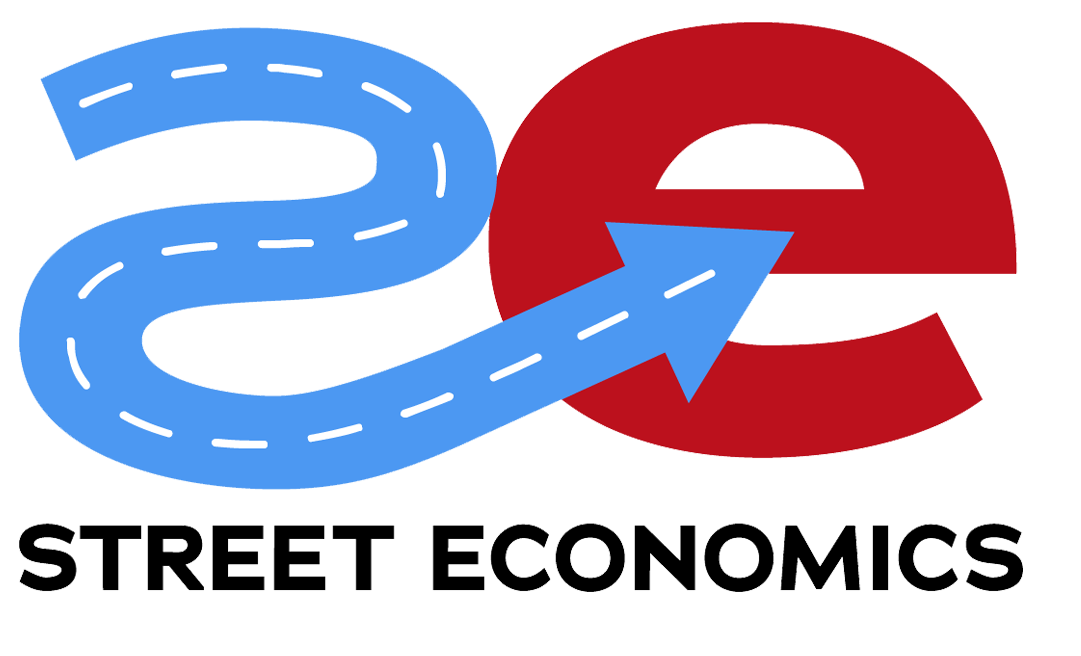Good morning, Walmart Watchers
BusinessFlare Take
THE ULTIMATE IRONY: WALMART BUILT AMERICA’S BEST DOWNTOWN AFTER DESTROYING EVERYONE ELSE’S – The breathtaking irony of Bentonville’s economic success story is that it was created by the same company that systematically murdered thousands of American downtowns and local businesses over the past 50 years. Walmart’s $1 billion headquarters investment, world-class trail system, and thriving downtown represents everything the company destroyed in communities across America – walkable streets, local businesses, authentic character, and economic vitality. While Walmart’s arrival traditionally meant the demise of Main Street businesses, historic downtowns, and locally owned retail, their home base enjoyed the opposite treatment entirely. The company that turned countless communities into economic wastelands with empty downtowns and dead local business districts created a paradise complete with artisanal restaurants, cycling infrastructure, and cultural amenities. This represents the ultimate economic development irony: Walmart’s business model obliterating vibrant communities nationwide while their headquarters enjoys everything those communities once had. Every charming downtown restaurant and locally owned shop thrives because Walmart chose to invest at home, while strip-mining the economic life from thousands of other American communities.
Street Economics Insight
BENTONVILLE’S TOURISM SUCCESS BUILT ON THE BONES OF COMMUNITIES WALMART DESTROYED – Visit Bentonville’s achievement of doubling tourism revenue to $41 million represents a masterclass in economic development irony – a thriving destination economy built by the same company that systematically eliminated tourism and local business in thousands of American communities. The city’s 310 carefully curated events, cycling festivals, and cultural programming exist because Walmart invested locally while its business model continued to destroy the local businesses, downtown districts, and community character that make places worth visiting everywhere else. The strategic event focus creating sustainable revenue streams stands in stark contrast to the economic devastation Walmart typically brings to communities – empty downtowns, dead local retail, and the collapse of locally-owned businesses that create authentic tourism experiences. The brutal reality is that the $137 million cycling economy, world-class art museum, and thriving downtown restaurants exist precisely because Walmart chose not to treat their headquarters location the way they treat everyone else’s community. This isn’t replicable economic development strategy – it’s the economic vampire’s homestead, beautiful because it feeds off the blood of other communities.
Drama Meter Reading
CHAMBER PLANS TO STUDY SUCCESS WHILE WALMART CONTINUES DESTROYING OTHER COMMUNITIES – The Bentonville Area Chamber of Commerce developing a “multiyear strategic plan” to examine how their economy should grow represents peak bureaucratic absurdity in a community that succeeds because of corporate investment. While local officials hire consultants to understand their success story, Walmart continues its systematic destruction of Main Street businesses and downtown districts in communities across America that will never enjoy such economic privileges. The chamber’s planning exercise epitomizes municipal delusion: studying how to replicate economic development that only works because Walmart chose to invest at headquarters instead of strip-mining their home base like they do everywhere else. Other chambers should save their planning money – this model requires hosting the economic vampire, not developing strategies. The real drama is thousands of chamber executives across America will study this success while their own downtowns remain dead because Walmart already came, conquered, and moved on, leaving behind the economic wasteland that was miraculously avoided by being the monster’s home base.
Book Drop
WALMART’S SEVEN-YEAR HEADQUARTERS PROJECT PROVES “RED TAPE EMPIRE” PREDICTIONS ABOUT REGULATORY COMPLEXITY –
Walmart’s new headquarters took seven years from initial planning in 2017 to opening in 2025, demonstrating how even the world’s largest retailer struggles with regulatory complexity that Kevin Crowder warned about in “Red Tape Empire.” The 350-acre project required navigating environmental reviews, zoning approvals, infrastructure permits, and integration with existing municipal systems – exactly the kind of regulatory layering that Crowder identifies as the primary obstacle to timely economic development. The project’s success came from Walmart’s ability to absorb regulatory costs and delays that would destroy smaller companies, while also working within existing city planning frameworks rather than fighting them. Crowder’s analysis of how regulatory barriers scale with project complexity proved prophetic – even a company with unlimited resources needed seven years to complete what should have been a three-year project. The lesson for other communities: if Walmart struggles with regulatory timeline, imagine what small businesses face trying to expand or relocate.
ECOSINT Signal
BENTONVILLE’S WALTON FAMILY INVESTMENT STRATEGY CREATES ECONOMIC INTELLIGENCE MODEL FOR PHILANTHROPIC DEVELOPMENT – The Walton Family Foundation’s strategic deployment of $74 million in trail infrastructure investment between 2008-2018 represents sophisticated economic intelligence that most municipal economic developers completely miss. Rather than traditional grant-making, the foundation has created integrated economic development through cycling infrastructure ($137 million annual economic impact), cultural amenities (Crystal Bridges expansion), and quality-of-life improvements that attract talent and companies. This approach demonstrates how strategic philanthropy can leverage private dollars to create public infrastructure that generates measurable economic returns. The intelligence insight for other communities: Major philanthropic families are increasingly investing in place-based assets rather than traditional charity, creating opportunities for partnerships that traditional economic development incentives can’t match. Communities that position themselves as investment-worthy destinations rather than subsidy-dependent beggars can access capital that government programs can’t provide.
Red River Flavor
WALMART EXECUTIVES EAT ARTISANAL MEALS WHILE THEIR BUSINESS MODEL DESTROYS COMMUNITY FOOD SYSTEMS NATIONWIDE – The moral depravity of Walmart’s headquarters food strategy extends far beyond corporate hypocrisy about processed foods – it represents the complete destruction of American community food systems by executives who reserve real food for themselves. While Walmart leadership enjoys 12 diverse dining options with fresh, local preparation, their retail empire systematically eliminated local grocers, farmers markets, and food retailers that once provided communities with authentic food options and local economic circulation. The same executives now dining on artisanal cuisine spent decades perfecting the business model that killed local food economies, destroyed regional food systems, and forced American families into food deserts where ultra-processed “food” became the only affordable option. Walmart’s corporate cafeteria carefully avoids the industrial food giants they empowered through their retail monopoly, creating a two-tier food system where the wealthy eat real food while working families get chemical death marketed as nutrition. This represents the ultimate evil of corporate food distribution: the destroyers of community food systems protecting themselves while forcing their victims to consume the toxic alternatives they created through their systematic elimination of local food choices.
The Music Cities
THE MOMENTARY PROVES LOCAL OWNERSHIP DESTROYS CORPORATE ENTERTAINMENT PARASITES – The Momentary’s success as Bentonville’s “epicenter of arts and music” demonstrates how locally-controlled venues obliterate the corporate entertainment extraction model that’s ruining authentic music economies nationwide. Instead of prostituting themselves to Live Nation, AEG, or other venue parasites that vacuum profits out of communities while delivering generic corporate “experiences,” the Walton family built genuine music infrastructure that serves artists and audiences rather than Wall Street shareholders. The Momentary’s FreshGrass Festival attracts 20,000+ attendees, the RØDE House Music Series books diverse programming, and Live on the Green creates community experiences – all without corporate overlords skimming profits to fund stock buybacks. This represents a battle for economic development: authentic local ownership versus extractive corporate colonization. While other cities bend over backwards for corporate venue operators, promising economic development that never materializes, Bentonville has built community-controlled infrastructure that keeps revenue local while creating sustainable cultural programming. The message is clear: corporate entertainment giants are economic disease, and local ownership is the cure.
Space Economy Signal
BENTONVILLE’S CORPORATE AVIATION INFRASTRUCTURE POSITIONS CITY FOR EMERGING AVIATION ECONOMY OPPORTUNITIES – Northwest Arkansas Regional Airport’s proximity to Bentonville, combined with the city’s concentration of corporate headquarters and tourism infrastructure, creates underappreciated positioning for the emerging urban aviation economy. Walmart’s global supply chain operations require sophisticated logistics coordination that increasingly includes advanced aviation solutions, while the city’s growing tourism economy depends on efficient visitor access that traditional commercial aviation can’t always provide. As urban air mobility and advanced aviation technologies continue to develop, communities with existing corporate aviation infrastructure, regulatory experience, and quality workforce pipelines will likely capture disproportionate economic benefits. Bentonville’s combination of corporate demand, tourism volume, and workforce quality creates the foundation for aviation economy participation that most communities lack. Economic developers in other regions should study how corporate aviation infrastructure becomes platform for broader aviation economy development.
Purple Cow of the Day
ALICE WALTON DECLARES WAR ON THE PHARMACEUTICAL-MEDICAL EDUCATION CARTEL – Alice Walton’s $1 billion+ assault on medical education orthodoxy through her holistic medical school represents the most serious threat to the pharmaceutical-medical establishment since they captured American healthcare a century ago. The Alice L. Walton School of Medicine isn’t just another medical school – it’s a direct declaration of war against the drug-dealing cartel that controls medical training to produce prescription-pushing pill dealers instead of actual healers. The “AWSOM” curriculum integrating whole-person health, prevention, and student wellness fundamentally threatens Big Pharma’s business model of manufacturing chronic disease patients for lifetime drug dependency. This terrifies the medical establishment because Walton has enough money to ignore their threats, boycotts, and regulatory warfare while producing doctors who might actually cure people instead of managing symptoms for maximum profit extraction. Other billionaires buy medical schools to perpetuate the current disease-for-profit system; Walton built a competing institution designed to destroy it. The pharmaceutical cartel’s worst nightmare: a medical school they can’t control, funded by someone they can’t intimidate, producing doctors who prioritize healing over profit margins.
About Street Economics Daily Street Economics Daily cuts through noise, jargon, and bureaucracy to deliver sharp, actionable insights for civic and economic development professionals. Blunt, irreverent, and grounded firmly in reality, it’s essential daily reading for city leaders who refuse to settle for outdated strategies. To learn more visit streeteconomics.ai



No responses yet